Is your team ready to demonstrate your commitment to excellent care? You’ve probably heard of Magnet® and Pathway to Excellence®, but choosing the right designation for health care organizations can be a struggle, especially with your busy schedule. Today, we’re going to break down the differences between the Pathway to Excellence® vs. Magnet® designations so you can pick the best one for your health care facility.
Magnet® Designation Overview
Magnet® designation is awarded by the American Nurses Credentialing Center (ANCC), demonstrating excellence in nursing. Only a small percentage of hospitals in the U.S. achieve this status, but it’s not just about the prestige. It’s about recognizing the role of nurses in spearheading change, creating strong teams, and improving patient outcomes. The designation is valid for four years, after which time an organization may choose to apply for redesignation.
Our team at Creative Health Care Management provides services to help you on your Magnet® journey, including:
- Readiness assessments
- Re-designation vulnerabilities assessments
- Professional governance support
- Professional advancement programs
- Magnet® Program Director education and coaching
- Professional practice model framework and care delivery system design
- Peer review and feedback process design
- Data management
- Document review and feedback
- Comprehensive journey support
Pathway to Excellence® Overview
The Pathway to Excellence® designation highlights a health care organization’s commitment to fostering a positive work culture. Also awarded by the American Nurses Credentialing Center (ANCC), this program emphasizes creating a healthy, supportive environment where nurses can flourish. Earning this recognition establishes your facility as a top place for nurses to work. Like Magnet® designation, this designation also lasts four years, after which time an organization may choose to redesignate.
If you’re interested in creating a positive practice environment for your staff, we can help. We offer services including:
- Readiness assessments
- Re-designation vulnerabilities assessments
- Professional governance support
- Pathway to Excellence® Program Director education and coaching
- Document review and feedback
- Pathway to Excellence® to Magnet® transition
- Full-spectrum support

Pathway to Excellence® vs. Magnet®: Key Differences
Comparing health care excellence designations can get a little complicated. When deciding between Pathway to Excellence® vs. Magnet®, it’s important to know their similarities along with their differences. Both programs focus on enhancing your organization’s culture and transforming your workforce to achieve excellence. But the purpose, process, criteria, and costs differ.
Purpose
Magnet®: The primary goal of this designation is to recognize organizations that provide excellent nursing care and have excellent patient outcomes.
Pathway to Excellence®: This recognition highlights hospitals with positive practice and work environments that help nurses thrive.
Designation Process
Magnet®: The Pathway to Excellence® vs. Magnet® applications are not equal. Magnet® requires a more demanding approach that relies heavily on detailed, data-driven evidence. The journey may be long and complex, but CHCM’s experts are here to partner with you every step of the way. The Magnet® designation process includes:
- Submitting an online application to the American Nurses Credentialing Center (ANCC)
- Providing documentation that proves your commitment to nursing excellence
- Examples: Your chief nursing officer’s resume, current nursing organizational chart, list of external databases, an Institutional Review Board attestation letter, and more
- Submission of a comprehensive document that addresses the requested Sources of Evidence described in the Magnet® Application Manual.
- Passing an on-site visit by a team of appraisers who will verify, amplify, and clarify what an organization has submitted in their written document.
Pathway to Excellence®: With no on-site visit, the Pathway to Excellence® application process, while comprehensive, is not as rigorous. The steps are as follows:
- Submitting an online application to the American Nurses Credentialing Center (ANCC)
- Providing documentation that proves your commitment to nursing excellence
- Submission of a self-study document that addresses the Elements of Performance described in the Pathway to Excellence® Application Manual.
- Completion of an online, confidential staff survey validating what was submitted in the written document.
Designation Criteria
Magnet®: To be eligible for Magnet® designation, you must answer “yes” to the following questions:
- Are you a health care facility?
- Do you have a chief nursing officer (CNO) who is responsible for nursing practice in all areas where nursing is practiced throughout your organization?
- Does your CNO have a master’s degree or higher? (NOTE: if their master’s is not in nursing then they must hold a BSN.)
- Do all other nursing leaders have at least a bachelor’s degree in nursing?
- At the unit level, do you gather information on nurse-sensitive indicators and submit this data to a national database?
In addition to these basics, there are five Magnet® components your hospital must address.
- Empirical Outcomes—Magnet® hospitals excel in nurse satisfaction, patient satisfaction, and patient outcomes, by using data to track progress and demonstrate their impact that exceeds the national benchmarks the majority of the time.
- Transformational Leadership—Leaders foster trust, innovation, and collaboration while driving change through meaningful dialogue, positive influence, and goal-focused guidance.
- Structural Empowerment—An effective work structure that empowers nurses through education, involvement in professional organizations, community involvement, professional development, and nursing recognition.
- Exemplary Professional Practice—Prioritize building exceptional nursing teams through autonomy, safety, interdisciplinary care, and collaboration while improving outcomes.
- New Knowledge, Innovation, and Improvement—ANCC Magnet Recognition® requires a commitment to advancing nursing through research, evidence-based practice, and innovative care models that contribute new knowledge to the profession.
Pathway to Excellence®: Want to know if your facility will qualify? You must reply “yes” to the questions below.
- Are you a health care organization where nurses care for patients?
- Do you follow all state and federal laws?
- At the time of application, do you have a chief nursing officer or director of nursing who is responsible for patient care?
- Does your CNO hold a BSN or higher?
Unlike ANCC Magnet Recognition®, your CNO does not need a master’s degree. In addition, you do not need to be part of an external database of nurse-sensitive indicators. Your facility must also meet the following six Pathway to Excellence® designation standards to qualify:
- Shared decision-making—Health care organizations should empower nurses by encouraging collaboration, networking, and giving them a voice in decision-making.
- Leadership—Leaders should be accessible and implement institutional protocols such as succession planning and retention strategies.
- Safety—Both patient and nurse safety should be a priority, along with crafting a respectful culture free of violence and bullying.
- Quality—Your facility must show continuous improvement by balancing evidence-based and person-centered care while improving the population’s health.
- Culture of well-being—This standard relies on supporting and recognizing your nursing team and providing staff with resources to promote their health.
- Professional development—Your entire team should have the necessary skills and education to provide quality care through ongoing mentoring and learning opportunities.
Costs
Magnet®: There are several fees you’ll need to pay during the application process. Some of them depend on the size of your organization.
- Online application fee: standardized regardless of organization size
- Appraisal review fee: varies by bed size
- Annual payment: varies by bed size
- Change in document submission fee: standardized regardless of organization size
For a full cost breakdown, visit the American Nurses Credentialing Center (ANCC) website.
Pathway to Excellence®:
- Application registration fee: standardized regardless of organization size
- Appraisal fee: varies by bed size
- Annual payment: varies by bed size
For a full cost breakdown, visit the American Nurses Credentialing Center (ANCC) website.
If you’re struggling to keep the differences between Pathway to Excellence® vs. Magnet® straight, don’t worry. We’ve created this chart to make things simple.
Pathway to Excellence® vs. Magnet®: Benefits
Choosing the right designation for hospitals and other facilities can be a tough decision. Both programs are valuable to pursue and provide unique advantages after receiving your designation.
Benefits of Magnet® Designation:
- Enhances patient care: Magnet® designation enhances patients’ satisfaction, safety, and outcomes. This results in shorter stays, lower mortality rates, and an increased standard of care.
- Increases staff satisfaction and retention: Magnet® hospitals experience less turnover because they empower nurses to practice excellent care.
- Attracts better nursing talent: High-quality candidates pursue positions at Magnet® designated organizations that have demonstrated their commitment to excellence.
- Improves your hospital’s reputation: Less than 10% (12/2024) of hospitals have achieved Magnet® designation, setting your organization apart.
- Provides financial benefits to an organization. Magnet® organizations report increased patient volume, decreased operations costs, enhanced financial bond ratings, and additional revenue.
Benefits of Pathway to Excellence® Designation:
- Higher nurse satisfaction: Organizations with a commitment to a positive workplace culture can reduce nurse burnout and focus on building a healthy work-life balance for employees.
- Lower turnover rates: When nurses feel empowered, you’ll see a spike in retention rates and less turnover.
- Encourages collaboration: Your staff can focus on collaboration, which also improves patient care.
- Supports business growth. Organizations with the Pathway to Excellence® designation find it easier to recruit staff and nursing leaders.
- More affordable for smaller facilities: Lower fees make this designation more accessible for organizations with fewer resources.

How to Decide Which is Right for You?
Now that we’re finished comparing health care excellence designations, it’s time to decide which is ideal for your facility. To start, evaluate your needs. What are you hoping to achieve with a national recognition?
If your goal is greater nurse satisfaction and building a positive work environment, Pathway to Excellence® may be the better choice. If your goal is to be recognized for the highest level of patient care, then Magnet® is for you.
Next, consider your resources. The Pathway to Excellence® vs. Magnet® fees differ greatly. What can your organization afford? How much time and personnel do you have to complete the application process?
Often Pathway to Excellence® is pursued by organizations that wish to validate their positive workplace culture and a strong emphasis on colleague wellbeing. Magnet®, on the other hand, is sought after by organizations that have a solid foundation in nursing practices and want to emphasize their outcomes, innovations, and advanced initiatives. They are each unique designations with their own specific goals—but neither is better than the other.
When in doubt, seek professional guidance on the program that’s right for you. Our team has over 50 years of lived experience in helping health care professionals like you find success on this rewarding yet complicated journey. Our Magnet® and Pathway to Excellence® preparation services will put all the tools you need within reach, ensuring you’re on track to achieving your goals.
Need support on the designation journey? See how we can help your organization thrive.
Marky has expertise in aligning people and processes, identifying emerging issues, and assessing the effectiveness of organizational interventions. The result: enduring measurable improvement. Marky uses her deep health care experience along with evidence-based practices to co-create a customized improvement plan with clients.





